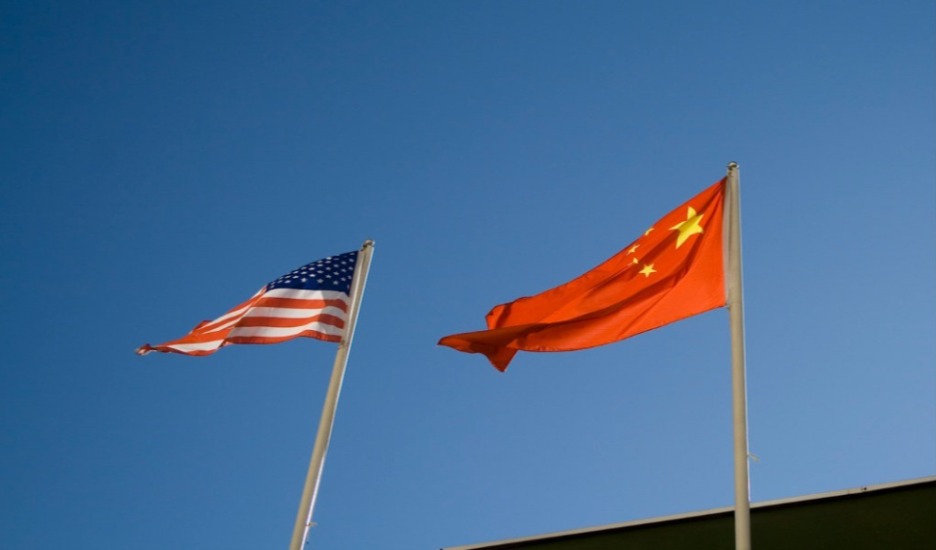More Possible U.S. Responses to the South China Sea Award: Why Not Economic Sanctions?
In the two weeks that have passed since the UN Convention on the Law of the Sea (UNCLOS) arbitral tribunal issued its award against China, no drastic actions have been taken by any of the key parties. China has not acted to further militarize or otherwise bolster its presence in the Spratlys, and the Philippines has not demanded immediate Chinese withdrawal. Bilateral negotiations may indeed occur.
Published by The Lawfare Institute
in Cooperation With

In the two weeks that have passed since the UN Convention on the Law of the Sea (UNCLOS) arbitral tribunal issued its award against China, no drastic actions have been taken by any of the key parties. China has not acted to further militarize or otherwise bolster its presence in the Spratlys, and the Philippines has not demanded immediate Chinese withdrawal. Bilateral negotiations may indeed occur. And it looks like all parties are going to stay relatively calm at least until after the upcoming September G-20 summit in China is finished.
But this does not mean all is well. Bilateral negotiations between the Philippines and China might never happen, or break down quickly. China could still act to bolster its military presence or expand its chain of artificial islands. So the United States may need to support the Philippines’ legal rights in some ways other than simply launching more aggressive freedom of navigation operations or continuing its diplomatic “shamefare” campaign. This post considers the legal basis for one rarely discussed option: the use of targeted economic sanctions. I hasten to add that I am not advocating this policy at the moment, but it is worth thinking about now rather than later.
I have seen surprisingly little discussion of economic sanctions in the numerous South China Sea articles published since the award was issued. Yet imposing targeted economic sanctions is one of the U.S. government’s favorite tools of international statecraft and it could be quickly employed here. The model for such “South China Sea” sanctions would be the sanctions imposed by President Obama after the Russian annexation of Crimea and subsequent incursions into eastern Ukraine.
The U.S. sanctions on Russia are called “targeted” because they do not impose an across-the-board ban on economic transactions with Russia. Rather, the sanctions freeze assets and block economic transactions by or with anyone who the U.S. government finds is responsible for contributing to the unlawful annexation of Crimea, parts of eastern Ukraine, or simply trying to undermine the government of Ukraine. The U.S. government, in other words, creates a list of “specially designated nationals” who become persona non grata as an economic matter to the United States. Such SDNs cannot conduct economic transactions in or through the United States, nor can any U.S. citizen (or corporation) knowingly engage in economic transactions with them. On top of all of this, the Ukraine/Crimea sanctions further impose an entry ban on any of these persons entering into the United States. The effectiveness of these sanctions is certainly debatable. But as a middle ground between doing nothing and imposing a full scale economic embargo on Russia, targeted sanctions seem like a reasonable policy decision.
This approach could be easily adapted for the South China Sea. Under the International Economic Emergency Powers Act, the President has broad discretion to impose these and other sanctions without specific congressional approval. Essentially, all the President has to do is declare a “national emergency.” This may sound like a tough standard but it turns out that the President does this quite frequently and courts have never overruled this determination. It would not be difficult for the President to determine that Chinese violations of international law in the South China Sea, including the illegal occupation of the Philippines’ continental shelf at Mischief Reef and/or Scarborough Shoal, constitutes a “national emergency” for the purposes of IEEPA.
The President would then have the legal authority to target individual persons and corporations that are supporting or assisting in China’s “illegal” activities in the South China Sea. This could range from state-owned corporations like the China National Offshore Oil Corporation (CNOOC) that are engaging in oil exploration in the region to suppliers of equipment for Chinese fishing fleets to investors in cruise liners supporting tourism in the region. In theory, all of these persons and corporations could be blocked from borrowing, lending, selling, buying, or doing any other kind of economic transaction in the United States or with a U.S. person. Individual Chinese executives, government officials, and military officers could also be subject to a travel ban to the United States.
It is hard to predict how much of an effect such sanctions would have. It hasn’t exactly rolled back Russian encroachments on Ukraine. But it has definitely caused pain for Russia and it would likewise impose non-trivial costs on the Chinese elite. For instance, Chinese nationals invest billions of dollars every year in the U.S. real estate market. Presumably, some of those assets would be frozen and others would be blocked under a South China Sea sanctions regime. Banning Chinese officials from traveling to visit their fancy New York apartments might also cause some teeth-gnashing and further signal the United States's seriousness on this issue.
Perhaps more importantly, such sanctions would serve as a warning signal to U.S. and other non-Chinese investors who might be tempted to economically support Chinese activities in the Spratlys. At the same time, regular trade with China could continue unabated and unaffected.
To be sure, there are many drawbacks to this approach. China would obviously retaliate in kind by imposing similar sanctions on U.S. corporations and individuals. A sanctions war, if not a trade war, could ensue. Indeed, the United States could suffer from the loss of investment and Chinese payback against U.S. businesses operating in China. Moreover, relations on the South China Sea issue, already tense, would become much more openly hostile.
But none of this means that targeted economic sanctions should not be seriously considered if the situation in the South China Sea worsens. There are not many tools that would allow the United States to push back against China’s actions in this region without directly risking armed conflict. Every one of these tools should be on the table.



.jpg?sfvrsn=5a43131e_9)

